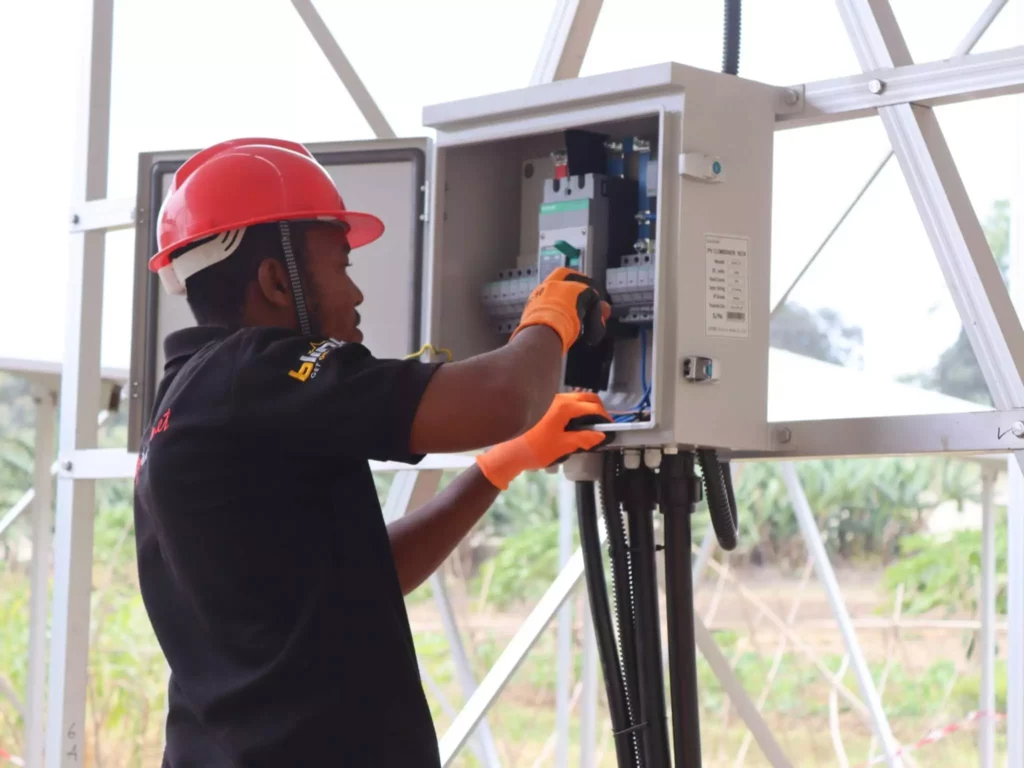GadgetroniX – OIKOS EAST AFRICA (WENI – PEMBA) – BOREHOLE SOLARIZATION PROJECT
Who, What & Where – Weni Pemba Borehole Solarization Project
GadgetroniX
Supply and installation of solar panels, solar water pumps, and Grundfos inverters
Weni, Pemba, Tanzania
The Company – GadgetroniX, Tanzania’s Leading Renewable Energy Solutions Provider
The Weni Pemba borehole solarization project, successfully completed by GadgetroniX, provides the community with reliable, solar-powered water supply, ensuring uninterrupted access to clean water while reducing operational costs.
GadgetroniX is a leading distributor and installer of solar, water, security & surveillance, and communication equipment in Tanzania. With over seventy full-time expert technicians, supported by electrical and mechanical engineers and quantity surveyors, the company specialises in energy systems, water systems, electric vehicles, mobile signal boosters, networking, and security & surveillance solutions.
The Challenge – Water Access Issues at Weni Community
The Weni community faced unreliable and costly access to water due to dependence on the unstable grid and fuel-powered pumps. Frequent power outages disrupted daily water supply, affecting homes, farmers, and local businesses. The community needed a sustainable and cost-effective solution to ensure consistent access to clean water.
Renewable Solution – Solar-Powered Borehole System for Weni Community
To address these challenges, GadgetroniX installed a solar-powered water pumping system, including:
-
41.4 kWp Solar Array – 90 high-efficiency JA Solar MBB Half-cell Monocrystalline PV Modules (460 W each)
-
Pump Controller – Grundfos RSI 3×380-440 V IP66 30 kW 61A
-
Pump Motor & Pump End – Integrated existing Grundfos equipment at the site
This off-grid solar system ensures the community receives 45,000 litres of water per hour, eliminating reliance on fuel or unreliable grid power while minimizing environmental impact.
Impact of the Weni Pemba Borehole Solarization Project
The project has transformed water access in the community:
-
Reliable water supply – Continuous access for homes, farmers, and local businesses
-
Reduced operational costs – No dependence on fuel or grid electricity
-
Eco-friendly solution – Significantly reduced carbon emissions
-
Sustainable development – Long-term, low-maintenance system built to last
-
Community empowerment – Access to water supports agriculture, education, and daily life
Thanks to this solarization initiative, the community now enjoys consistent, cost-effective, and sustainable water supply, serving as a model for renewable energy adoption in rural Tanzania.


